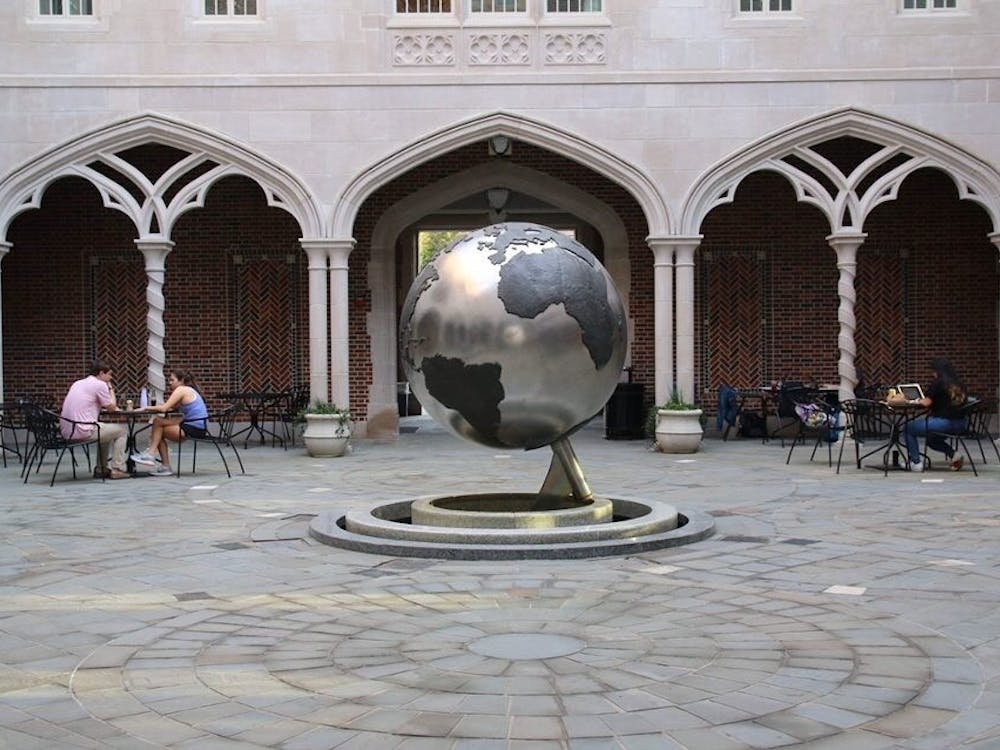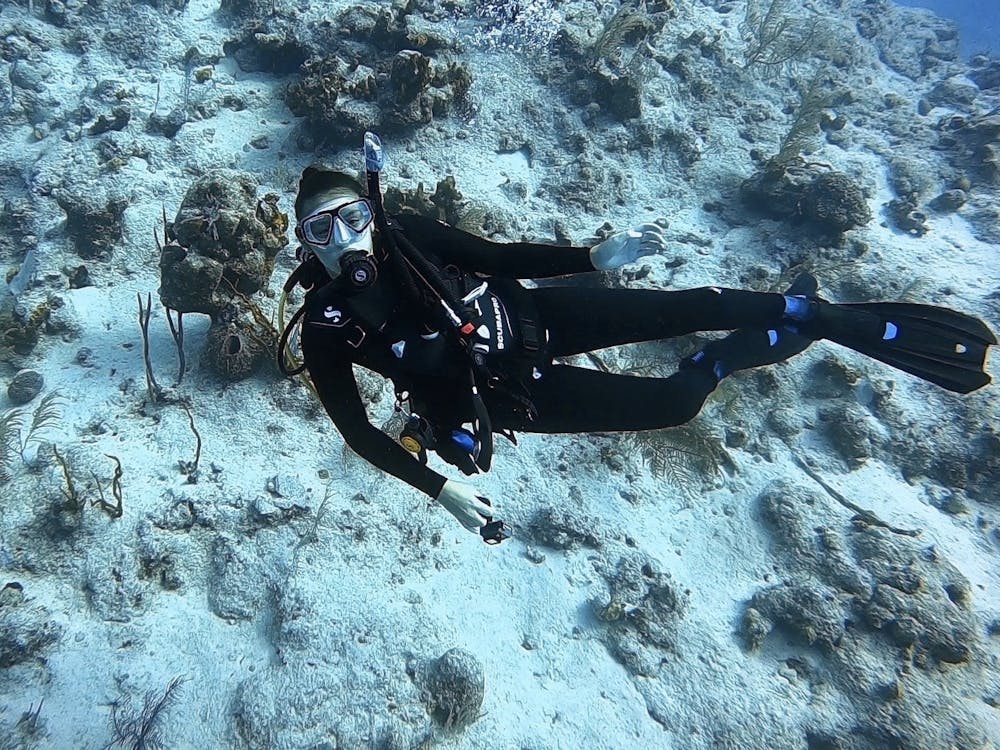NORTHERN IRELAND -- "Craic" (pronounced 'crack') -- a good time, or news/gossip, as in:
"What's the craic?"
"That was some great craic last night."
"I'll go for the craic."
Craic is one of my favorite Irish phrases I've picked up so far. It's gonna be big in the States. Or at least I'll be saying it. Anyway, here's some other good ones:
"Aye" -- Yes
"That's class." -- That's awesome/cool/I like it.
"Chips" -- French Fries
"Crisps" -- Chips
"Mad/Mental" -- Crazy, awesome, fun
"What ya at?' -- What's up?
"Airlocked/Blocked/Off my Face" -- Drunk
Enjoy what you're reading?
Signup for our newsletter
So, life abroad. It's my second semester abroad ... I studied in Spain last semester, and am at it again in Northern Ireland. Some people asked me if I miss Richmond -- but being abroad is way too fun to worry about missing Ring Dance and D-hall Mint Chocolate Chip cookies (clearly on the same level).
I can't believe it's been six weeks since I arrived. It's already flying by! The campus is beautiful, the people are great, and my room is pretty sweet (single room, private bathroom/shower, brand new kitchen ... Lakeview has got some serious competition!)
A few weekends ago, Derry celebrated the 37th anniversary of Bloody Sunday, which was one of the most significant events during the "Troubles" of the Irish-British struggle. Bloody Sunday happened on January 30, 1972, here in Derry, when the British Parachute Regiment opened fire on the Northern Ireland Civil Rights Association, a non-violent group of protesters. Twenty-seven were shot and 13 died.
The city put on a lot of events to commemorate the victims and survivors of the event, and they did a great job at connecting the Irish-British conflict with other cases of ethnic and political conflict worldwide. Some of the events had been historical tours of the site, round tables on internment issues worldwide, dedication of a monument to Cuban revolutionary Che Guevara, candlelight vigil for Gaza, a fundraising concert, and a commemorative march and rally.
Although it was a sad series of events, they were really informative. Some were more biased than others, but it's all important to better understand the conflict and the opinions of those who have been affected. I've especially liked all of the connections the events made across social and political borders like talking about Gaza, Darfur, Iraq, Cuba, and even the Basque Country.
A few weeks later, Derry celebrated "International Week of Solidarity with the Basque Country", where there were even more events on comparing/contrasting the Basque situation and the ETA with the Northern Irish situation and the IRA. I studied in the Basque Country of Spain last semester in Bilbao and found those events to be particularly interesting. Members of the Irish-Basque committee held a forum on the issues and their ideas for moving forward with their campaigns. Some members shared more radical views than others, but the panelists I saw were all in agreement on self-determination for the Basque Country and reintegration of Northern Ireland into the Republic.
What I found even more interesting was that these people -- although passionate and devoted to their cause -- mostly had the facts wrong. I am much less familiar with the Irish conflict, having only been here for a few weeks, but I was shocked to hear how some of the Basque activists were describing their lives at home ... making it seem as though they live lives of terror, fear, shame, and persecution. Maybe I didn't see those parts of the Basque Country, but I doubt that's truly the case, or at least not as widespread as they had argued.
One Basque representative explained the political system in Spain and claimed that the Basque people had "no voice whatsoever" in politics -- which is not true. The nationalist PNV (Basque Nationalist Party) has been active in national politics for years, and although they don't share the same goals for self-determination as the activists I met with, the PNV is one example of the "Basque voice" in politics. There has also been a large number of Basque political parties over the years who have been active and elected into government, but are often found as sympathetic to -- or even directly connected to -- the Basque terrorist group, ETA. Upon such findings, these parties are immediately banned from Spanish politics. However, the party's elected members in official posts at the time of the party's disbandment are allowed to complete their terms in office, which is a pretty liberal law sympathetic to the Basque voice, even though it's being 'silenced' on the grounds of violence prevention.
Anyway, I'm beginning to notice some interesting trends within these activist groups working for self-determination. Keeping in mind that this is only from my observation as an undergraduate with no hard facts or evidence, I feel as if many of these passionate individuals are fighting for a cause just for the sake of fighting. I found that many are generally of low socioeconomic backgrounds, have not gone to college, and generally have the same views as their parents, siblings, and friends. It's a movement they can call their own in a society that often marginalizes them for other reasons (again, socioeconomic status or level of education). I wonder if these sentiments are passed down rather than independently developed, and if their activist work is more emotionally or intellectually driven. On that same note, which is more important? That's a question I'll have to think more about ...
Moving away from the heavy stuff ... I crashed a high school prom a few weeks ago. Forget about Ring Dance -- my favorite adventure so far in Derry has definitely been the Foyle High School Prom.
I was out with a few American friends, and we had gone to the Derry City Hotel to see one of the Bloody Sunday events -- a talk on internment rights and the Bradley/Eames agreement. On the way out, we ran into a few girls in prom dresses. We asked if it was their prom, only to be promptly corrected: "No, this is our formal. Are you Americans? That's so cool! Why do you call it prom anyway? What I'm wearing is formal-wear, not PROM wear! Come in, come in!" And so we were dragged into what ended up being the best prom I've ever been to.
We danced for hours, completely out of place considering we were all wearing jeans, but we were warmly welcomed and ended up getting invited to a few high school after-parties. We politely declined, and headed home. The most interesting thing about it all was that there was a cash bar -- these high school kids were totally blocked at their own prom! Definitely a different setting than what us Americans have been used to. The only people more airlocked than the students were the teachers. Bet you didn't get wasted with your chemistry teacher at prom.
Hopefully my posts will get a little more exciting ... I'm going to London, Dublin, Belfast, and Amsterdam over the next month. Any tourist-y suggestions?
Peace,
KB
http://web.mac.com/kellybehrend for pictures and video!
Support independent student media
You can make a tax-deductible donation by clicking the button below, which takes you to our secure PayPal account. The page is set up to receive contributions in whatever amount you designate. We look forward to using the money we raise to further our mission of providing honest and accurate information to students, faculty, staff, alumni and others in the general public.
Donate Now

